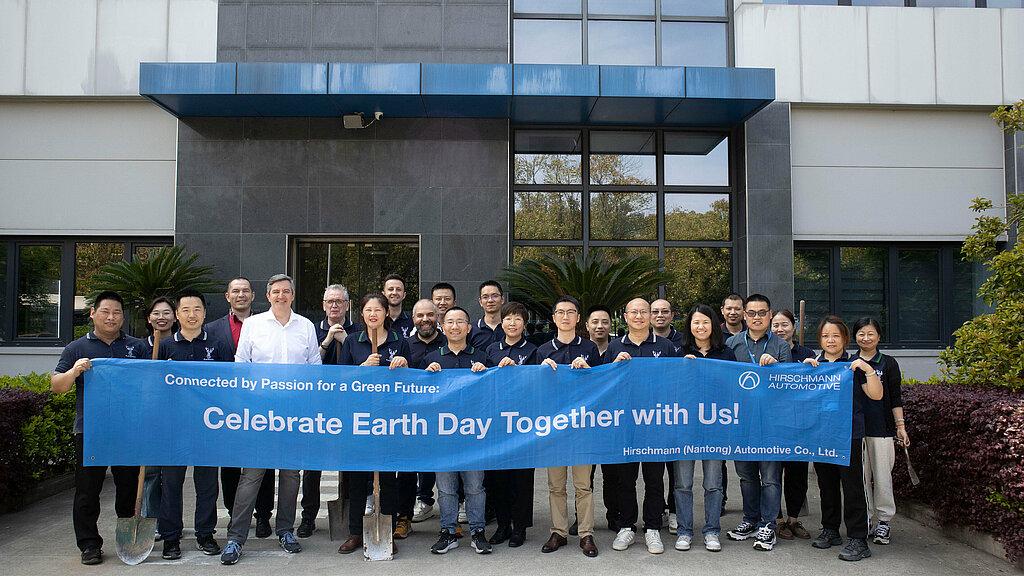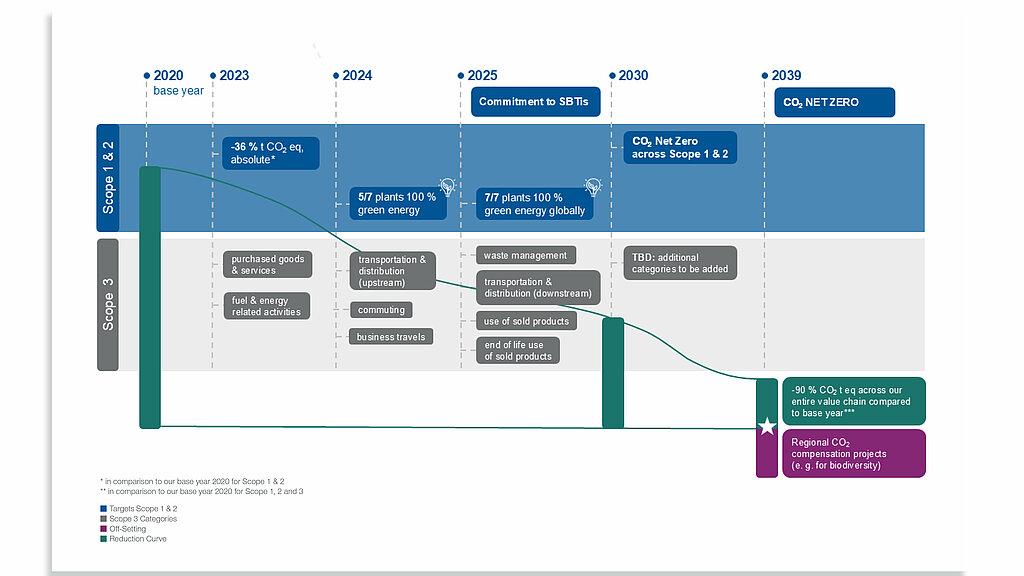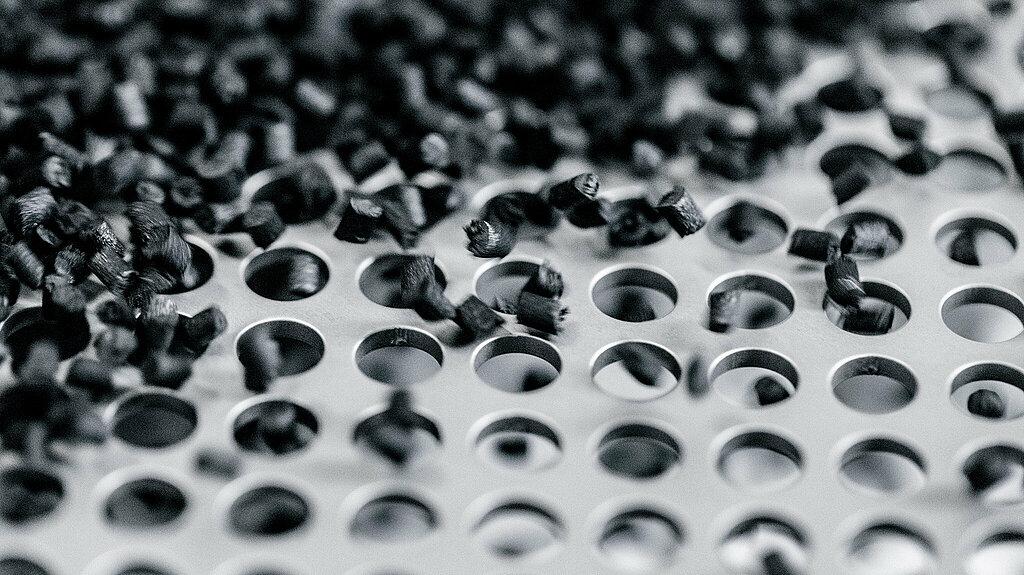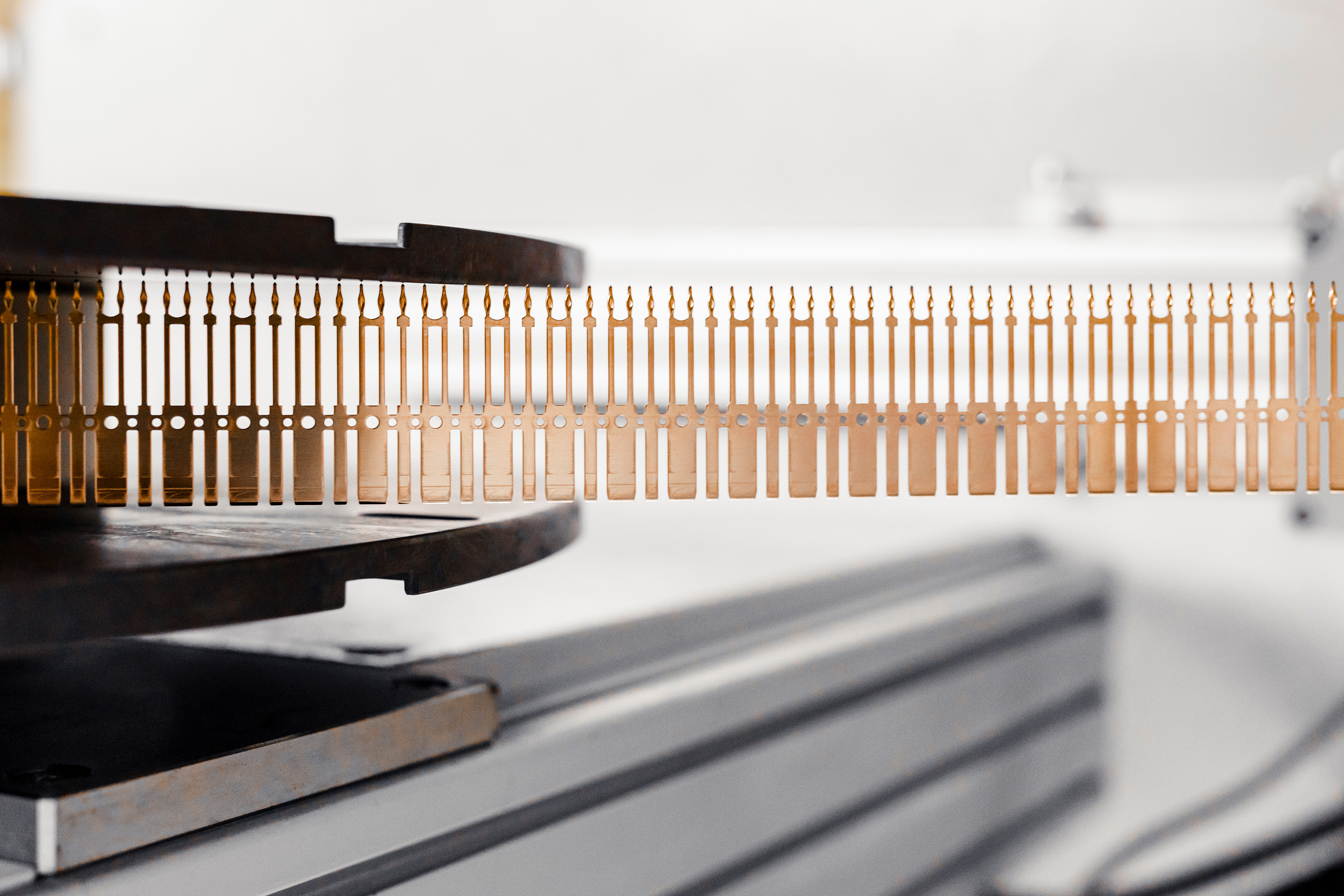We Invest in a Sustainable Future
Because we carry a great responsibility: for our fellow human beings, our environment, and future generations. As a globally active company, we rely on a holistic sustainability strategy. In all our activities, we consider the social, ecological, and economic dimensions. We believe in progress through sustainable innovation - because we are #ConnectedByPassionForAGreenFuture.


Innovation for a Greener Planet
Our Sustainability Strategy 2030 includes numerous innovative projects anchored throughout our organization. With our CO2 roadmap, we have committed to producing NET ZERO along our entire value chain by 2039. We prioritize community engagement through exciting projects such as our annual Earth Week campaign. At the same time, we dedicate ourselves to research and innovation in collaboration with our partners to establish more sustainable materials and a circular economy.
Discover our sustainability initiatives, exciting development projects, our Sustainability Agenda 2030, and more in our GRI Report 2020-2024.
Our Roadmap to NET ZERO
With our CO2 roadmap, we aim to achieve NET ZERO on Scope 1, 2, and 3 by 2039. We can only achieve this ambitious goal as a community along our value chain. We are, therefore, working closely together with all specialist departments, our customers, suppliers, and business partners. Numerous projects are aimed at making our processes more efficient and conserving resources. Our interim goal is to achieve NET ZERO on Scope 1 and 2 by 2030. By the end of 2025, we will switch to 100% green energy at all plants. We have therefore already installed seven photovoltaik systems at seven plants and exchange with local stakeholders to secure access to renewable energy sources. We are committed to a sustainable, independent power supply for our production processes.

Our Sustainability Agenda 2030
100% Green Energy Supply
All our facilities will be 100% powered by green electricity with photovoltaic systems and certified green power supply in close cooperation with our stakeholders.
NET ZERO in Scope 1 & 2
We will achieve our NET ZERO target for scope 1 and 2 of our corporate carbon emissions and achieve significant reductions for scope 3 to realize net zero by 2039 for all scopes.
Circular Economy & Recyclats
We successfully carry out cooperation projects for an efficient circular economy. We heavily invest in the research of more sustainable materials such as PCR (Post-Consumer), PIR (Post-Industrial) grades and bio-based materials.
Support Equal Opportunities
We create career and training opportunities for all employees, ensuring everyone can unfold their full potential.
Product Carbon Footprint
We are able to calculate the product carbon footprint for all our products, enabling the transformation towards a greener supply chain.
Green Transport & Commuting
We continuously improve our transport management towards more sustainable variants. We change towards a green company vehicle fleet and promote environmentally friendly commuting for employees.
Community Engagement
We strongly believe in the power of our employees to fuel our sustainability agenda. Our ambitious targets can only be achieved when we walk this pathway united and grow together. We are therefore initiating campaigns, awareness trainings and community projects across all plants.
Customer Cooperation
At the heart of our activities lies the exchange with our customers and business partners. Whether we talk about achieving NET ZERO, developing new materials, more efficient ways of production and transport - we always work in close cooperation with our stakeholders to ensure a future of growth and innovation.

Circular Economy & Resource Conservation
With our research and development team and our ISO-certified laboratory, we develop customer-specific solutions for a sustainable, mobile future. More than 25% of our innovation projects focus on the CO2 footprint of our materials.
With our recycling facility at our plant in Vsétin, Czech Republic, we prioritize on efficient material recycling. From material substitution to secondary materials from PIR (post-industrial recyclates) and PCR (post-consumer recyclates) – together with our business partners, we develop products that create a circular supply chain.
Navigating a Responsible Value Chain
Hirschmann Automotive is actively participating in the transition towards a more sustainable industry. We have identified our key levers alongside the entire value chain, incorporating the life cycle of our product. We aim to minimize any negative impacts of our business activities and create long-term sustainable value for all stakeholders of our organization.
9% of annual sales are spent on Research and Development.
The OPEX rate increased in high voltage applications from 24.6% to 33.7% from 2020 to 2023.
30% of leadership positions at Hirschmann Automotive worldwide were consistently held by women between 2020 and 2023.
74 key suppliers have signed the Code of Conduct by the end of 2023 (cooperation towards CO2-neutrality).
74 key suppliers were screened via NQC platform by 2023 (from around 290 direct suppliers = fluctuation).
Our supply chain is in alignment with the local-for-local principle.
66.7% of the total electricity consumption in the production is from renewable energies by 2023.
CO2 emissions at group-wide production sites worldwide were reduced by 36% in 2023 compared to the baseline year 2020, which refers to 7,236 t CO2 e for Scope 1 and 2.
The energy consumption globally was 56,202,536 kWh in 2023.
The share of our products in electrified vehicles (xEV) in group sales has increased from 10.3% in 2020 to 29.1% in 2023.
64% of our generated waste was recycled and returned to circular economies from 2020 to 2023.
Up to 30% of regranulates are used per product.
Approximately 1,000 tons of regranulate are produced in-house annually and used to manufacture products.

Sustainability Management






